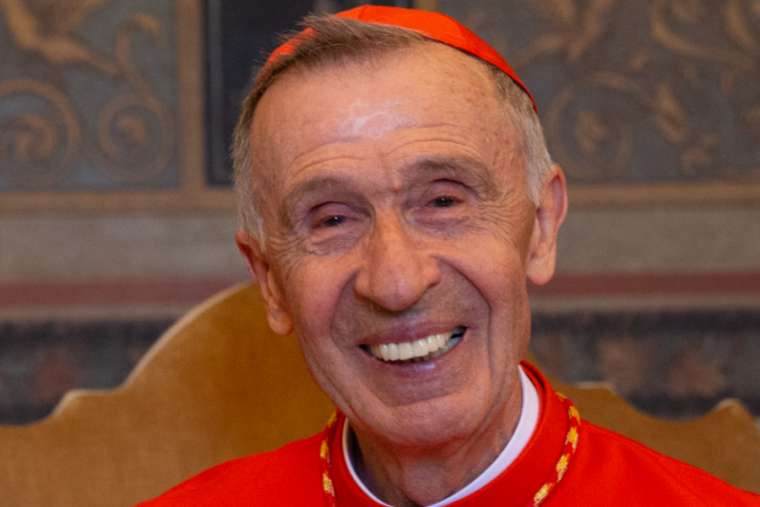Cardinal Luis Ladaria Ferrer, prefect of the Congregation for the Doctrine of the Faith, in Rome June 28, 2018. Credit: Daniel Ibáñez/CNA.
The Vatican’s doctrinal chief has emphasized the Catholic Church’s duty to promote and protect her teachings as passed down by the Apostles.
Speaking to Vatican News yesterday, Cardinal Luis Ladaria Ferrer, S.J., prefect of the Congregation for the Doctrine of the Faith (CDF), noted that “what was called ‘concern for right doctrine’” existed before the CDF was created in 1542 and has its roots in the New Testament.
“Our mission is to promote and protect the doctrine of the faith. A task that will always be necessary in the Church, which has the duty to transmit the teaching of the Apostles to new generations,” he said in the interview.
Ladaria noted that “the concrete way of completing this task has changed over the centuries and we can think that it will change again. But the concern for fidelity to the doctrine of the Apostles will always remain.”
When the office now known as the CDF was established by Pope Paul III in 1542, it was called the Supreme Sacred Congregation of the Roman and Universal Inquisition. It served as the final court of appeal in heresy trials.
Ladaria commented that the office is “no longer the Inquisition” and “the Index no longer exists.”
The Sacred Congregation of the Index was a former dicastery of the Roman Curia which produced the Index Librorum Prohibitorum: a list of publications judged immoral or heretical. The last Index was produced in 1948. It was formally abolished in 1966.
The CDF prefect explained that the past of that congregation, sometimes called the Holy Office, “still weighs, because we do not always realize the profound changes that have taken place in the Church and in the Roman Curia in recent times.”
“Our mission is universal, even if our work takes place in Rome,” he stressed. “But our documents are for the universal Church, and the decisions we have to make every day, within the sphere of our competences, very few times directly concern Rome.”
Ladaria said that sometimes the mission of CDF staff takes them physically outside of Rome, such as when they travel for meetings with the doctrinal commissions of bishops’ conferences. The CDF also has frequent meetings with bishops during their ad limina trips to Rome, which take place every five years, to see the pope and pray at the tombs of Sts. Peter and Paul.
“They are of great importance, and they take a lot of time and energy,” he said.
Like Pope Francis, Ladaria is a member of the Society of Jesus. He said it is evident that the pope is familiar with the spirituality of St. Ignatius of Loyola, the order’s founder, from listening to his addresses.
“It is natural that this is the case. And it is normal that this has consequences in his way of governing and in his decisions,” Ladaria said.
“But Ignatian spirituality is universalist, not particularist, it is open to everything and everyone,” he continued, explaining that for this reason, he does not think it is easy to identify specific consequences of having a Jesuit pope.
Answering a question about how the congregation is responding to Pope Francis’ call to reach “the peripheries” of society, Ladaria pointed to the CDF’s work in the area of protection of minors from abuse and processing abuse cases.
He observed that “on many occasions, the victims of abuse are among the poorest of the poor.”
“There are many types of peripheries,” the cardinal said. “The people we have to listen to, the problems we have to solve, touch real peripheries, perhaps not as visible as others, but no less real and painful for this.
Source: CNA

